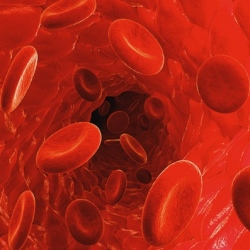
Receiving the wrong type of blood during a transfusion can be a fatal mistake. But what do you do when you have type A blood flowing through your veins, but the hospital only has type B on hand? A new enzyme could change that B blood into type O, known as a “universal” blood type, allowing for a successful transfusion.
A and B blood types are distinguished by their antigens: carbohydrate chains that coat the red blood cell. Type O, however, has no antigens, which allows it to be transferred even to people with A or B type blood, according to the American Red Cross. Type O blood is also the most common blood type, but type O patients can’t accept anything but their own type, so producing more type O blood will be a boon for just about everyone. (As long as we’re not producing the stuff in futuristic factories, anyway.)
To transform one type of blood to another, researchers at the University of British Columbia developed an enzyme that, once introduced to donated blood, can quickly strip the cells of their antigens, making them type O. A paper describing their work was published in the Journal of the American Chemical Society.
“This idea has been around for a number of years, but the problem has been that the enzymes that are known to be able to remove antigens from blood cells are really not efficient at all,” David Kwan, lead author of the paper, told me. “It hasn’t been practical to do this on any kind of scale that would be useful for clinical applications. We’ve developed a method to improve the efficiency of these enzymes.”
The approach involved randomly mutating the enzyme’s genes, Kwan said, for several generations, only selecting the more efficient versions as they went along. “It’s like evolution in nature, but it’s done in a lab,” Kwan said. The final product was 170 times more efficient than the enzyme they started with.
